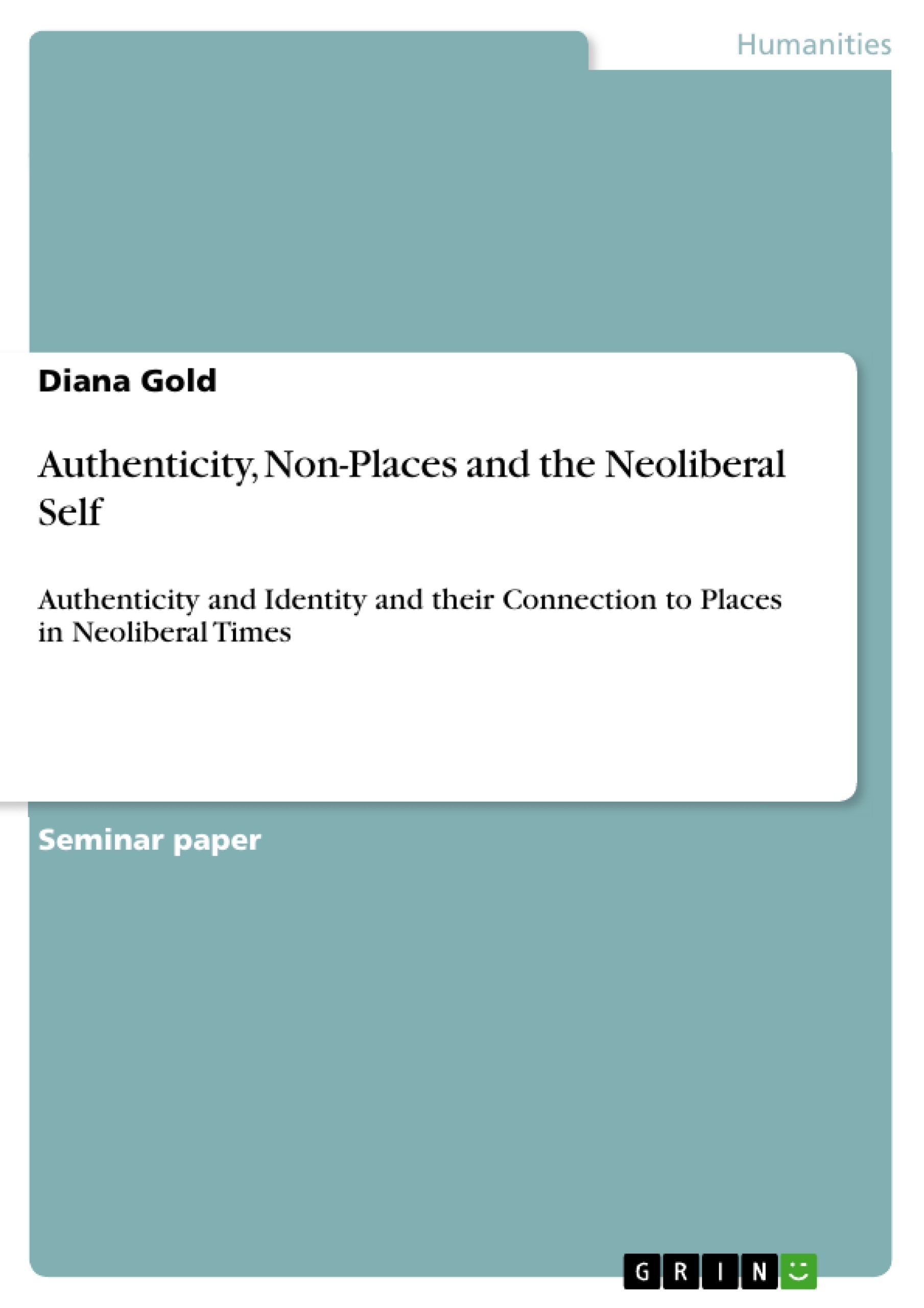When does something start to be authentic and when does it end? Why is authenticity a very positively connotated word? Why do tourists seek real, authentic places and people (individuals and ethnic groups)? And what do they declare or accept as authentic? Can something be authentic as soon as it gets commodified?
In my work, I would like to answer these questions by drawing on the concepts of authenticity, ethnicity, as well as, the dimensions and the paradoxes of globalization.
In my opinion, authenticity is a term which suggests that something /somebody is/ has “real” culture, history and social life, although authenticity doesn’t have to be something historical. Therefore, the opposite must be something with no history and no vital social life, no individual, personal or historical relation to the place. I think these are the so called “non-places”. According to Marc Augé these places (Non-Lieux) are producing solitude and are following the capitalistic, rationalist thinking, which leads me to the neoliberal self. Neoliberalism is not only manifested in economic terms, but also in social and cultural ones. That means that the economic changes through neoliberalistic governance, like the retreat from the welfare state, the enhancing of privatization etc. also impact individuals in their social and cultural life. Or, in other words, the macro- and micro structures are entangled and can’t be divided.
My questions regarding the neoliberal-self and authenticity are the following: How does neoliberalism affect the personal identity? How do authenticity, ethnicity and tradition get mobilized for the neoliberal self or for city branding? In this paper, I’m going to start with the explanation of authenticity and its opposite, the non-places, as contrasting concept and finally I will explain the connection of authenticity and anthropological places, as well as, non-places and the neoliberal self.
Inhaltsverzeichnis (Table of Contents)
- Introduction
- What is authentic?
- Ethnicity and authenticity in the case of New Orleans
- The loss of identity and solitude of non-places
- The Neoliberal Self, Authenticity and Non-Places
- Conclusion
- References
Zielsetzung und Themenschwerpunkte (Objectives and Key Themes)
The main objective of this paper is to explore the relationship between authenticity, non-places, and the neoliberal self in a globalized world. It aims to analyze how the concepts of authenticity and ethnicity are mobilized in the context of globalization, particularly within the framework of city branding and tourism. The paper also seeks to understand how the neoliberal ideology influences individual identity and the perception of space and time.
- The nature of authenticity and its paradoxes in a globalized world
- The role of ethnicity in constructing and mobilizing authenticity
- The impact of globalization and neoliberalism on individual identity and place
- The concept of non-places and their contribution to social and cultural alienation
- The relationship between authenticity, non-places, and the neoliberal self
Zusammenfassung der Kapitel (Chapter Summaries)
The introduction of the paper lays out the central questions surrounding authenticity, exploring its ambiguous nature and its connection to both historical rootedness and creative innovation. It introduces the concepts of non-places and the neoliberal self, emphasizing the impact of globalization on individual identity and the perception of space and time.
The second chapter delves deeper into the concept of authenticity, analyzing its various uses and its potential for contradiction. It examines the significance of Lefebvre's "lived space" and its opposition to Augé's "non-places" and explores how authenticity is often mobilized for city branding and gentrification debates.
The third chapter focuses on the role of ethnicity in defining authenticity, using the case study of New Orleans. It highlights the importance of ethnicity in creating identity in a globalized world and explores how the city's ethnic heritage is instrumentalized for economic and touristic purposes. The chapter examines the phenomenon of public-private partnerships in city branding and their connection to neoliberal ideologies.
Schlüsselwörter (Keywords)
The key concepts and themes explored in this paper include authenticity, non-places, the neoliberal self, globalization, ethnicity, identity, city branding, gentrification, and tourism. The work examines the complex interplay of these themes and their impact on individual and collective experiences in a rapidly changing world.
- Arbeit zitieren
- Diana Gold (Autor:in), 2017, Authenticity, Non-Places and the Neoliberal Self, München, GRIN Verlag, https://www.hausarbeiten.de/document/444444



